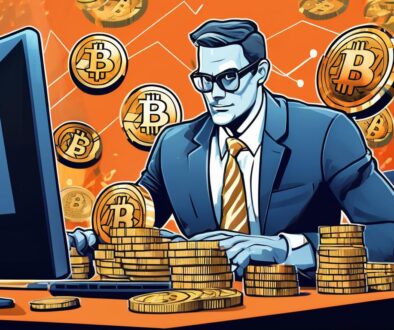Spot Crypto ETFs Outperform Trusts and Strategy Funds: A Clear Winner Emerges

Spot Crypto ETFs Outperform Trusts and Strategy Funds: A Clear Winner Emerges
For years, investors wanting to add Bitcoin or Ethereum to their portfolios without the hassle of private keys and crypto exchanges had limited options. The landscape was dominated by clunky crypto trusts and complex futures-based funds, each with significant drawbacks. But with the landmark arrival of spot crypto ETFs, the game has completely changed.
New research confirms what many experts suspected: when it comes to tracking the true price of cryptocurrencies, spot ETFs are the undisputed champions. If you’re looking for crypto exposure through your traditional brokerage account, understanding the difference between these products is crucial. Let’s break down the three main choices and see why one is clearly pulling ahead of the pack.
The Old Guard: Crypto Trusts (e.g., Grayscale Bitcoin Trust)
Crypto trusts were the pioneers, offering the first bridge between traditional finance and digital assets. These are essentially closed-end funds that hold a large pool of a specific cryptocurrency, like Bitcoin. Investors buy shares in the trust, which represent ownership of a small fraction of the crypto held within.
The Problem with Premiums and Discounts
While innovative for their time, trusts come with a major flaw: their share price can—and often does—deviate significantly from the actual value of the crypto they hold. This is known as trading at a premium or discount to the Net Asset Value (NAV).
- Premium: When demand is high, shares can trade for more than the underlying crypto is worth.
- Discount: When demand is low, shares can trade for much less than the crypto’s value. For a long time, major trusts traded at a steep discount, meaning investors’ holdings were worth less than the Bitcoin they were supposed to represent.
This disconnect means that even if Bitcoin’s price goes up, your investment in a trust might not follow suit, creating a frustrating performance drag.
The Complicated Cousin: Futures-Based “Strategy” ETFs
Next came the futures-based ETFs. Instead of holding actual Bitcoin, these funds invest in Bitcoin futures contracts—agreements to buy or sell Bitcoin at a predetermined price on a future date. They were seen as a step forward because they used the familiar, regulated ETF structure.
The Hidden Cost of “Rolling” Futures
The main issue with futures ETFs is a phenomenon known as “contango” and the associated “roll costs.” Here’s a simple breakdown:
Futures contracts have expiration dates. To maintain exposure, the fund must constantly sell expiring contracts and buy new ones for a later date. In a typical market (contango), future-dated contracts are more expensive than the current ones. This process of selling low and buying high creates a small but persistent drag on performance. Over time, these roll costs can cause the ETF to significantly underperform the actual spot price of Bitcoin.
The Game Changer: Spot Crypto ETFs
The approval of spot crypto ETFs in 2024 marked a watershed moment for the industry. These are the investment vehicles that many have been waiting for, and for good reason. They are simple, direct, and effective.
A spot crypto ETF holds the underlying asset—physical Bitcoin or Ether—directly. When you buy a share of a spot Bitcoin ETF, you are buying a claim on actual Bitcoin held in custody by the fund manager. This direct ownership model solves the core problems of both trusts and futures funds.
Why Spot ETFs Are Superior
- Direct Price Tracking: Because the fund holds the actual asset, its share price tracks the spot price of the cryptocurrency with incredible accuracy. There are no significant premiums or discounts and no performance drag from rolling futures contracts.
- Lower Fees: The intense competition among issuers like BlackRock, Fidelity, and others has driven management fees to rock-bottom levels, making them a highly cost-effective option.
- Accessibility and Liquidity: Like any other stock or ETF, you can easily buy and sell shares throughout the day in your regular brokerage account, benefiting from high liquidity.
- Regulated and Secure: These products are listed on major stock exchanges and managed by some of the biggest names in finance, offering a layer of security and regulatory oversight that many investors demand.
The Verdict: Performance Doesn’t Lie
Recent financial analysis has made the conclusion unavoidable. By comparing the daily returns of trusts, futures ETFs, and the new spot ETFs against the actual price of Bitcoin, the results are stark. Spot ETFs provide a near-perfect reflection of the asset’s performance.
Trusts can lag due to NAV discounts, and futures ETFs consistently underperform due to roll costs. For investors whose goal is to capture the true price movement of Bitcoin or Ether, it’s clear why


